Session 2 – Built Environment
Shaping our built environment for a fairer future
As a key component of the Scottish economy generating around £8bn Gross Value Added directly, and underpinning all other sectors, the construction and built environment ecosystem has a critical role to play in creating a strong, resilient and fair future for Scotland. Getting the way we create and adapt our built environment right will help to ensure a Just Transition to net zero carbon for Scotland’s citizens.
This session will discuss how we need to be looking at shaping our workforce to ensure people centric design creates great places and spaces, as well as opportunities for current and future generations. It will address the issue of adapting our existing built world so it is fair for those thriving in it, and how those responsible for its delivery can learn from current and future best practice. Finally, it looks at how we can turn this challenge into opportunity. What are the innovative ways to adapt the way we create our built environment so it is fair for all?
This session is for anyone who works or interacts with the built environment and wants to be inspired by transformative thinking and solutions working in practice.
VIDEO
SPEAKERS
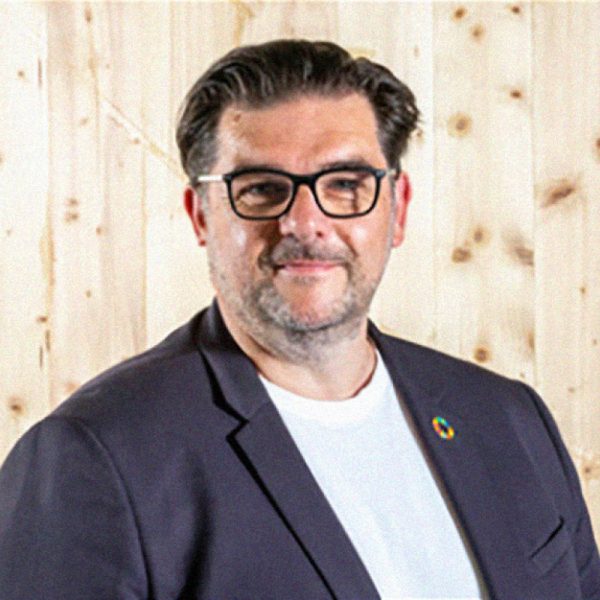
Stephen Good BSc, MArch
CEO, Construction Scotland Innovation Centre
As CEO of Construction Scotland Innovation Centre (CSIC), Stephen is responsible for delivering CSIC’s mission; “to mainstream an innovation culture that accelerates the transition to a zero carbon built environment” and CSIC’s vision, to support and enable; “a better built environment that delivers inclusive and sustainable economic, social and environmental impact”.
Stephen qualified as a Chartered Architect in 1998 and spent nine years with Anderson Bell + Christie, initially as a part III graduate student progressing to Senior Associate, designing and delivering award winning community regeneration, affordable housing, education and healthcare projects. In 2007, he joined construction group CCG (Scotland) Ltd to lead the technical delivery of their £12million state-of-the-art offsite manufacturing facility, CCG (OSM) Ltd, now regarded as one of the UK’s most advanced.
Taking on the new role of Design Director at CCG in 2010 saw Stephen add responsibility for R&D and innovation activities across the group with the establishment of the Building Futures Lab, a specialist energy, sustainability, design, research and innovation team.
Having first chaired the industry steering group in 2013 that led the successful bid to Scottish Funding Council to establish CSIC, Stephen has held the role of CEO since the centre’s launch in October 2014, and during this time has grown the organisation from a business plan idea to Scotland’s national innovation centre for construction and the built environment. To date, CSIC has supported over 400 collaborative innovation projects and programmes that have unlocked over £1.4BN of additional revenue for businesses, creating new markets in the process, supported the commercialisation of over 300 new products, processes, systems and business models, helped develop new green skills and talent across the workforce with the safeguarding and creation of over 5,000 jobs and contributed to Scotland’s carbon emissions reduction targets through programmes including circular and sustainable building materials, eliminating over 6M tonnes of CO2e emissions to date.

Anne Johnstone
Project Manager, After the Pandemic/Founder, Fair Futures Partnership
Anne Johnstone is an experienced environmental and sustainability professional and a member of CSIC’s governance board. She established her own business, Fair Futures Partnership, in July 2020 having previously held senior management positions at global environmental and real estate consultancies. For the past year she has been working with After the Pandemic, an accelerator for change, incubating and enabling creative projects that impact our society, cities and the environment for the better. After the Pandemic @COP is a bold, grass-roots initiative to create a space for everyone, where we can all take part in the climate conversation and drive positive change – together for our planet. This free event will take place in Glasgow’s city centre during COP26.

Alexander Holt
Emerging Opportunities & Partnerships Lead, Digital Directorate, Scottish Government
Alexander was the founder and Champion of the CivTech® Programme, driving daring and innovation in the public sector. He was hugely honoured to win the Leadership Award at the Scottish Public Service Awards in December 17 for this work. And Alexander was delighted for the team to win Scottish Public Sector ICT Team of the Year 2018, and be shortlisted for the UK Civil Service Awards for Innovation 2018.
Previous roles included running number of government tech procurements. Before moving back up to Edinburgh he spent eight years in London, six of which were spent growing his own digital creative agency delivering ‘super shiny’ web apps for Google, PayPal, Sony Ericsson, McDonald’s, Adobe and other leading brands. He is massively passionate about the benefits of digital transformation in the public sector which leads to better value services that make our lives better.
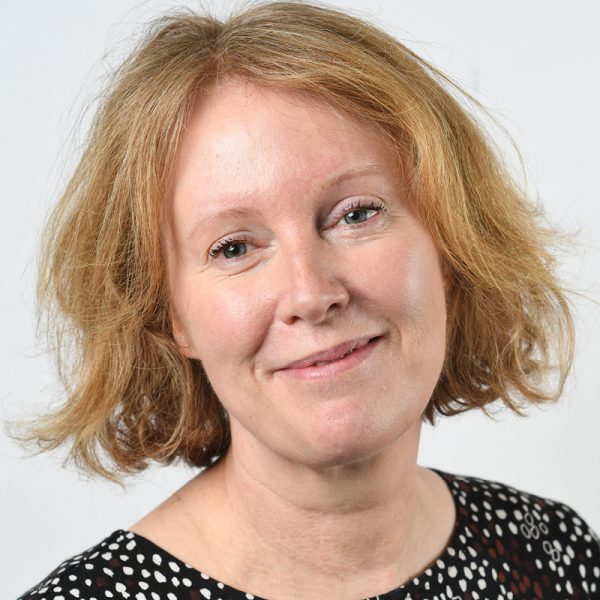
Jo Green
Chief Officer, Performance & Innovation, SEPA
Jo joined SEPA in 1999 and has held a number of senior operational and organisational roles, working in parallel in recent years in roles in the social enterprise and voluntary sectors. Prior to joining SEPA Jo spent 10 years in the private sector, including working internationally from a Scottish base in a major consultancy. She has also worked at Scottish Enterprise on economic regeneration and inward investment in Scotland.

Alan Wilson
Managing Director of SELECT (The Electrical Contractors’ Association of Scotland)
Alan has worked in the construction industry in a number of roles for nearly 40 years and became Managing Director of SELECT, Scotland’s largest construction trade association, in 2018. He previously worked for SNIPEF, the plumbing federation, for 27 years. Alan has a great deal of experience in renewable technology, serving as chair of the Scottish Government’s micro-renewable working group and being a member of the MCS board. He is currently the chair of the Construction Industry Coronavirus (CICV) Forum which was set up in March 2020. The Forum is a collective of 30 leading trade and professional bodies set up to share advice and speak directly with government on issues affecting members during the current pandemic.
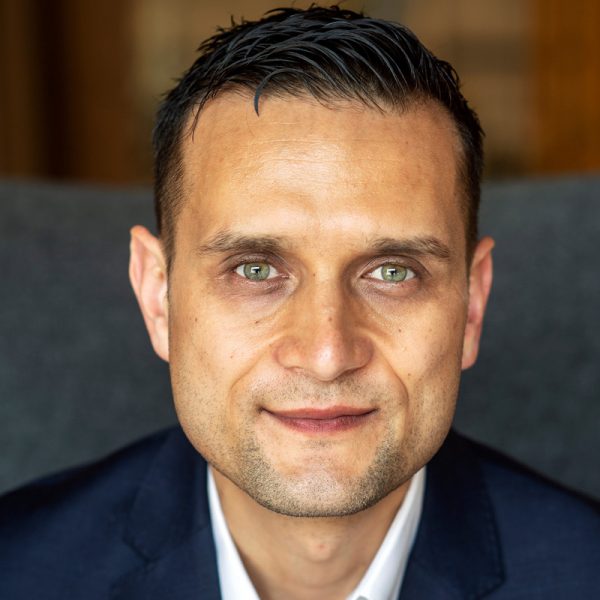
Douglas Morrison
Director of Operations and Future Skills, Construction Scotland Innovation Centre
Douglas is an experienced leader with a history of working in the further and higher education and construction sectors. He is responsible for supporting the construction industry in Scotland to embrace transformational change through the adoption of modern methods of construction, investment in skills and changes in policy and investment strategies.
As an award-winning educator and business leader, Douglas brings a wealth of experience in driving high value and high growth strategies across a range of sectors and businesses. He is a Fellow of the Institute for Innovation and Knowledge Exchange (FIKE) and holds several board and non-exec roles with organisations including Glasgow City of Science and Innovation, the Glasgow Economic Leadership committee for advanced manufacturing and the Scottish Funding Council. Douglas has worked extensively across Europe and Asia through collaborative developments and is a regular speaker on skills, innovation and equality.

David Raey
Professor, University of Edinburgh
Dave Reay is Professor of Carbon Management & Education at the University of Edinburgh. He directs the Edinburgh Climate Change Institute (ECCI) and is an advisor on climate change for the Scottish and UK Governments. Dave’s latest project involves managing his small farm on the west coast of Scotland to regrow native tree species and trap a lifetime’s carbon.
Dave studied Marine Biology at Liverpool University and graduated in 1994. He went on to gain a PhD with the British Antarctic Survey and Essex University studying the response of Southern Ocean algae and bacteria to global warming. After gaining his doctorate he continued working as a post-doc at Essex, investigating the impact of land-use on the soil methane sink. In 2001 he moved to Edinburgh University to investigate emissions of the greenhouse gas ‘nitrous oxide’ from agriculture, then carbon fluxes in forests, and went on to become a Natural Environment Research Council (NERC) Fellow examining greenhouse gas emissions from wetlands and agriculture. In 2008 Dave became the university’s first lecturer in carbon management and became a senior lecturer in 2009, a Reader in 2013, and was appointed Chair in Carbon Management & Education in 2014. Dave became a Senior Fellow of the Higher Education Academy in 2015.
He is designer and editor of the climate change science website Greenhouse Gas Online and of the SouthernOcean: Antarctic Seas and Wildlife website. He enjoys running (on an annual basis), Test Match Special, and writing stories for his daughters.

Lucy Black
Director of Innovation and Engagement, Construction Scotland Innovation Centre
Lucy has been with CSIC since July 2016 working with ambitious innovative businesses within the Scottish construction industry, overseeing the development of pioneering new projects and engaging industry in CSIC’s work. With a career in economic development and consultancy focused on innovation and international collaboration for the last 18 years, Lucy has worked extensively with innovative companies and universities across Scotland and Europe within construction and renewable energy. Her expertise lies in building new business models based on innovation and developing strong commercialisation strategies whilst leveraging in appropriate added value from across Scotland’s support landscape. Lucy works with a large industry network creating new relationships between industry and academia, driving forward the Scottish construction industry to deliver higher economic growth with an international outlook.

Cllr Susan Aitken
Leader of Glasgow City Council
Susan Aitken has been Leader of Glasgow City Council since May 2017 and is the first SNP Leader of the Council. For her work to deliver equal pay justice for thousands of women in the city, she was awarded Scottish Local Government Politician of the Year.
Under her leadership Glasgow has been named the host of COP26, a Global Green City, and the European Capital of Sport for 2023.
Susan has worked in a variety of policy and research roles in the Scottish Parliament and the third sector, and as a freelance writer and editor specialising in health and social care policy. She is a graduate of both Glasgow and Strathclyde Universities.

Caitriona Jordan, Future Skills Manager
Construction Scotland Innovation Centre
Caitriona is a Chartered Architect, holding a Masters’ Degree in Architecture from Robert Gordon University. Having worked in practice for several years, in 2011, she began work as a Lecturer in Architecture at the City of Glasgow College. She has experience working on projects within both the public and private sectors, including listed building refurbishments, commercial office design, school projects and domestic dwellings.
Having worked on a range of funded projects for both City of Glasgow College and Construction Scotland Innovation Centre, she has been involved in a variety of projects with external partners, such as Inclusive Value, Offsite Ready and EMIC-GEM (Embracing Modular Innovation in Construction – Getting Education Modernised). Within these projects Caitriona played an instrumental role, as a project partner in developing teaching content, engaging with industry. Now leading on the Passivhaus in Practice project, Caitriona has delivered an upskilling and reskilling programme to over 600 participants.
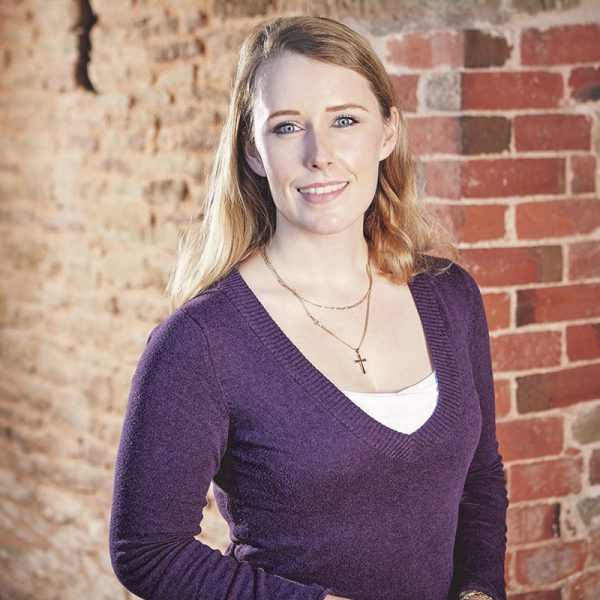
Ann-Marie Fallon
Associate Director, Architect and Certified Passivhaus Designer, Architype
Ann-Marie is one of the UK’s leading experts on Passivhaus design and has shared her experience at UK and international Passivhaus Trust conferences. Ann Marie is leading an Architype team to develop an innovative process to create compatible workflows for Passivhaus and BIM implementation; streamlining the delivery of certified projects. She has a sound working knowledge of specialist thermal bridging and hygrothermal software as well as whole building energy modelling software.
She has successfully delivered the award-winning and UK’s largest Passivhaus residential scheme, Agar Grove. Since focusing on the development of our Edinburgh office she is overseeing the delivery several primary and secondary schools within Scotland. She was involved in quality and technical design reviews for the UK’s largest Passivhaus secondary school, Harris Academy Sutton, the UK’s first Passivhaus Plus school, Hackbridge Primary, and the UK’s first Passivhaus Plus office, Bicester Eco Business Centre. Ann-Marie also brings expertise in EnerPHit, the Passvhaus standard for retrofit, having delivered Architypes first Enerphit in 2017 and the first Enerphit in Ireland in 2011.
Ann-Marie worked closely with the Scottish Futures Trust developing the new cost metric for Scotland’s learning estate as well as contributing to new energy requirements for Scotland’s education sector, linking capital funding to operational energy performance over a 25-year period. In addition to her work at Architype, Ann-Marie has always had an interest in giving back to architectural education. She is a part-time teaching fellow at the University of Bath, Part 1 external examiner at Robert Gordon University and visiting part 3 External Examiner for the Technical University of Dublin, and The Bartlett School of Architecture UCL London.
Education
Ann-Marie became a fully qualified Architect in 2013, following her studies at the Dublin School of Architecture, where she was awarded the Jack O’Keefe medal for academic excellence. Interested in deepening her knowledge in sustainable architecture, she went on to complete an MSc in Environmental Building Design at Cardiff University in 2014. Ann-Marie was also among the first in the UK to become a Certified Passivhaus Designer in 2009.
Ann-Marie has also been a regular contributor on the national and international conference/CPD circuits on topics such as Implementing Passivhaus in Practice, Zero Carbon, Fuel Poverty and Passivhaus at Scale, Embodied Carbon Impact of Passivhaus and has regularly shared lessons learnt from key Architype projects.

Barbara Lantschner
Senior Building Performance Specialist, Passivhaus Consultant, Retrofit Coordinator
Barbara is an experienced Building Performance Specialist leading the Hab-Lab Building Performance Evaluation service and Deep Retrofit projects at JGA, focusing on Post Occupancy Evaluation (POE), energy efficiency assessment, energy modelling, performance gap assessment, renewable energy assessment, Indoor Air Quality, ventilation, building-users engagement programmes. As well as managing this innovative, challenging and award-winning service, Barbara has excellent research and presentation skills giving presentations at the UK PassivHaus Conference, UK All-Energy Conference, UK Energy Saving Trust, the Glasgow Civic Heritage Trust, etc. She was involved in several research projects, including Mechanical Ventilation and Indoor Air Quality research studies for the Scottish Government. She also provides PassivHaus and Building Physics advice within JGA. Barbara holds a wide range of sustainability accreditations, including Level 5 Diploma in Retrofit Coordination and Risk Management, BREEAM Accredited Professional (AP), Certified Passivhaus Consultant/Designer (CEPH), Domestic Energy Assessor, etc.
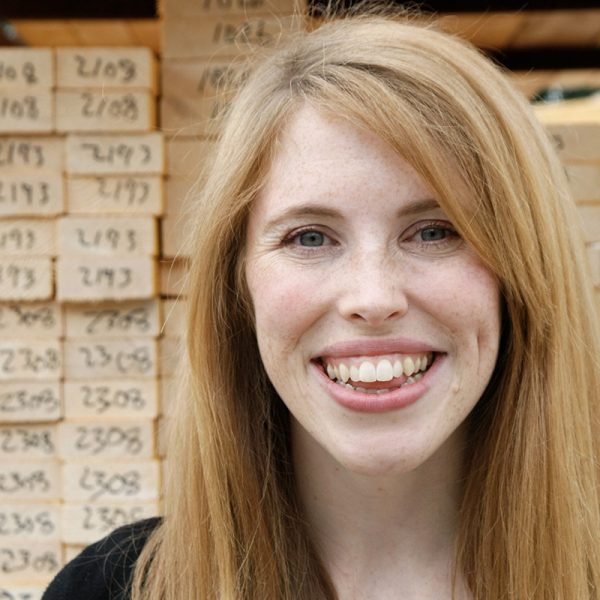
Nicola Jackson M.Arch, ARB
Technical Manager, Robertson Timber Engineering Ltd
Nicola Jackson is an ARB registered Architect and is a specialist in modern methods of construction. As a Technical Manager at Robertson Timber Engineering she is part of the Robertson Group, one of the largest independently owned construction, infrastructure and support service groups in the UK. Nicola is also the chair of Offsite Solutions Scotland – a consortium of leading offsite manufacturers working together to share knowledge and carry out joint research to accelerate the offsite industry. Following further learning on innovation and strategy at MIT University, she is driving fundamental change in the construction industry.
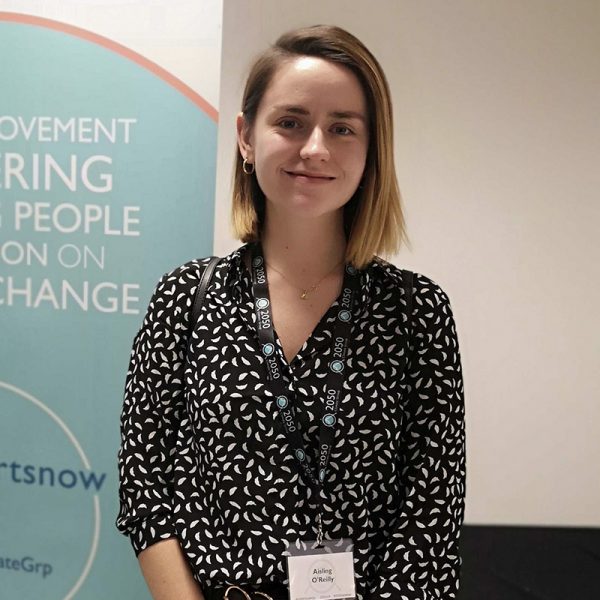
Aisling O’Reilly
Project Coordinator in the Department for Social Responsibility and Sustainability, University of Edinburgh
Aisling works as a Project Coordinator in the Department for Social Responsibility and Sustainability at the University of Edinburgh. Experienced in energy, behaviour change and the built environment, Aisling works to identify energy efficiency and wider sustainability opportunities on campus. Recent projects include the delivery of the £4.75m Sustainable Campus Fund and the production of the University’s Energy Masterplan. Prior to joining the University, Aisling worked for Changeworks, an environmental charity that delivers solutions for low carbon living. Aisling is Vice-Chair of CSIC’s Built Environment Changemakers, a Young Leader at the 2050 Climate Group and a Practitioner member of IEMA.

Nicola Crawford
Programme Director of Developing the Young Workforce
Nicola joined the Chamber in March 2019 as the Programme Director of Developing the Young Workforce. She brings extensive Industry, Strategic and educational experience to the role.
With over 20 years’ experience in the education sector her passion for empowering people and equality fits perfectly with this privileged role. She has been pioneering throughout her career creating and leading on bespoke programmes allowing access for all and to specifically meet the needs of Industry. Indeed, in her last role as Director of Nautical Studies she was the first female non-seafarer to assume that position in the UK and created pathways to allow any young person interested in accessing the Merchant Navy.
Nicola holds a Doctorate in Analytical Chemistry from Strathclyde University and also a Chartered Manager. Nicola is a member of the Glasgow Employer and Skills board.
She is also a mum to three daughters and a gran to two year old Olivia. Nicola likes nothing more than spending time with her family and also her two cats and Golden Retriever pup.

Richard Scott
SNRG Co-founder & CDO
Artist, public art curator, architect and developer based in the UK. He graduated with distinction from the Bartlett (UCL) and Sci-Arc (Los Angeles) in 1993. He worked at Cornell University in New York with Andrew Zago and for Will Alsop in London and Moscow in the 1990’s. Formed by Richard in 1996, Surface won 1st Prize in the Shinkenchiku-Sha Residential Design Award in Japan that year. ‘Aquaphilia’ was their ‘Ideal Room’ at The RIBA in 1997. Richard has taught at the Bartlett (UCL), the Architecture Association (AA), Brighton, Leeds Met and UCA_Canterbury. In 2000 Surface won 1st Prize in the competition for Razorfish HQ, London and designed the South Eastern European University (SEEU) in Tetovo, Macedonia. Surface was twice runner up for the Young Architect of the Year Award (2004, 2005) and in the ‘40under40’ Exhibition at the V&A, London, 2005. Buildings for London University brought worldwide attention, receiving RIBA Awards for the Lockkeeper’s Graduate Centre, Queen Mary University and the Centre for Film & Media at Birkbeck University. Kevin McCloud, of Channel 4‘s ‘Grand Designs’, described Surface as ‘canned energy, fit to burst’. He designed the Way-finding structures for the 2012 London Olympic Park, winning the Sign Design Society Grand Prix Award, 2013. Richard was master-planner for Hull’s Fruit Market Regeneration, featuring prominently in the UK City of Culture 2017 and Design Champion for Hull’s £400M ‘BSF’ programme, involving 16 new school buildings. Kingswood Academy, where he collaborated with AHMM, won RIBA Awards and was short-listed for the World Architecture Festival Awards in 2013. Richard was Resident Artist for Telefonica’s Alpha Moonshot program in Barcelona, public art curator for BarrattLondon in Camden and Harrow and an International Board member for Chatmore British International School in Bermuda and St. Albans School. Richard’s art has been exhibited at the Royal Academy Summer Exhibition (2012, 2014, & 2015). He was part of the ‘EUMake Process’ Exhibition in Shanghai PRC and has had solo shows in London and Bucharest. Collaborations combining motion graphics, music and poetry involved the poet Simon Armitage and composer John Harle. Richard also illustrated John Harle’s book ‘The Saxophone: The Art and Science of Performing’ published by Faber Music.

Nick Bolton
Development Director, SNRG
Nick has over 30 years’ experience promoting places, building brands and developing partnerships that deliver economic benefits for local communities. Having started in inward investment and commercial development with one of the original UK Enterprise Zones in the 80’s Nick has gone on, as Head of Economic Development in Cambridge and latterly as Director of Investment & Marketing in North Northamptonshire, to devise and deliver economic growth, investment and place marketing plans in some of the fastest growing local authority areas in the UK.
Nick co-founded Electric Corby community interest company in 2012 to accelerate the transition to a sustainable future delivery projects including Community Energy, EV Charging infrastructure and “Zero Energy Bill” homes. The most recent project of 47 energy positive homes lead to Nick joining SNRG in 2020 to lead the development of the next generation of all-electric communities.

